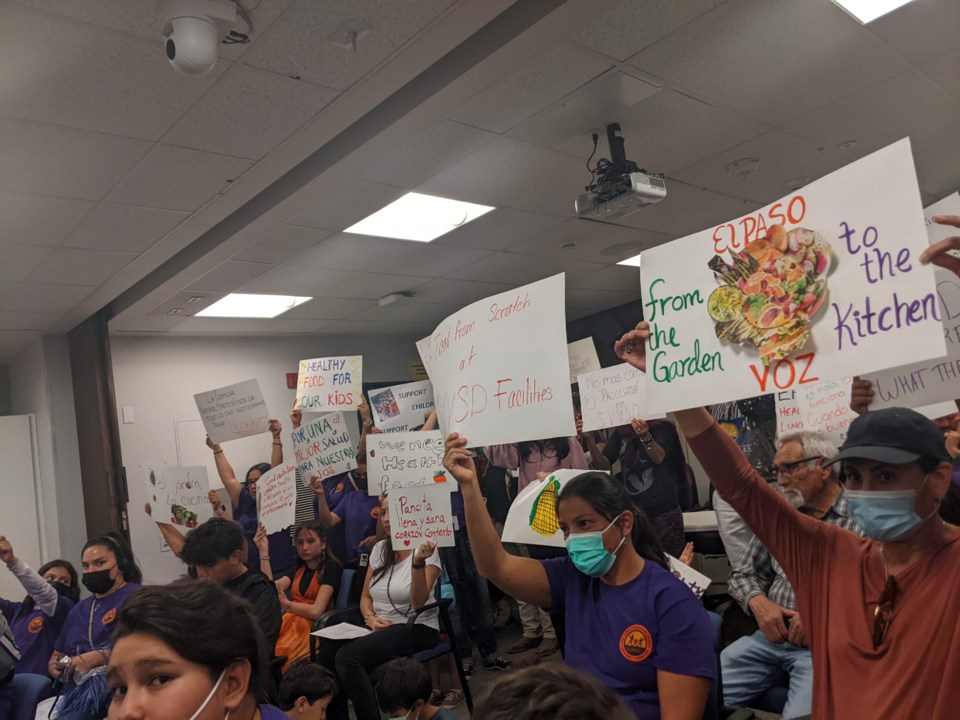Roughly 50 protesters turned out to Wednesday’s St. Vrain Valley School District school board meeting to ask for healthier meals in schools.
People of all ages, many in purple shirts, joined ELPASO Voz Longmont to fill the school board room for a peaceful protest. Many held signs with statements like, “No more processed foods,” “Support farmers,” and “Food from scratch for all facilities.”
According to a release from the organization, ELPASO Voz has been lobbying school leaders since 2020 to improve school meals by sourcing local ingredients and preparing food from scratch. Five people spoke up at the meeting to ask for healthier and unprocessed foods with less salt, sugar, chemicals and preservatives, including a mother who spoke in Spanish and three St. Vrain students.
“I am here because I don’t like the food they serve in our school,” a Timberline PK-8 student said at the meeting. “In my experience of eating at school, I didn’t really like it because it doesn’t have any flavor or taste and it doesn’t seem appetizing.”
She proposed alternative meals that she believed to be more well rounded. A Twin Peaks Middle School sixth grader shared that she has stopped eating school meals.
“It was a very small amount and not very filling,” the student said. “During classes I would get hungry which would make it hard for me to focus. I would be hungry either because the food was very little or because I just didn’t want to eat because sometimes the pizza would be cold or really greasy and the meat and sandwiches would have small frozen parts.”
She asked that food be fresh, not frozen or canned, and made from scratch.
Angel Sanchez asked for equity in the district, pointing to the achievement gap impacting students of color and arguing that better meals could help students.
“Our education and our students' education is not solely just based on test taking and what they do in the classroom in relation to grades,” Sanchez said. “It’s also how we show up for them and how we prepare them to do that. That includes the nutrition that we’re giving them and how we’re feeding them to ensure that they are in a better position to be successful in their academics.”
The school board did not respond to the comments, which is normal practice per board policy. District spokesperson Kerri McDermid shared a statement after the meeting, highlighting St. Vrain’s work on student nutrition.
“St. Vrain has a strong focus on nutrition and has received many recognitions such as the USDA's Once in a Melon Award for administering an exemplary farm to school program,” she said. “Additionally, all of the approximately 4,000,000 meals that our Nutrition Services team has served so far this school year meet or exceed the standards set by the U.S. Department of Agriculture, and local produce — including organic produce from Colorado's Western Slope — is incorporated whenever available.”
McDermid added that the district this year received an $11,700 grant from the Colorado Department of Education and USDA Farm to School Subgrant to support student led and grown agriculture for school cafeterias. Nine schools will participate by growing produce in their established gardens, using the yield of produce within their own cafeteria for recipe development and taste testing.
The St. Vrain school district also shares the full nutritional information for daily meals online and offers fresh fruits and vegetables daily. Those menus can be found at www.svvsd.org/departments/operations-maintenance/nutrition/menu/.


